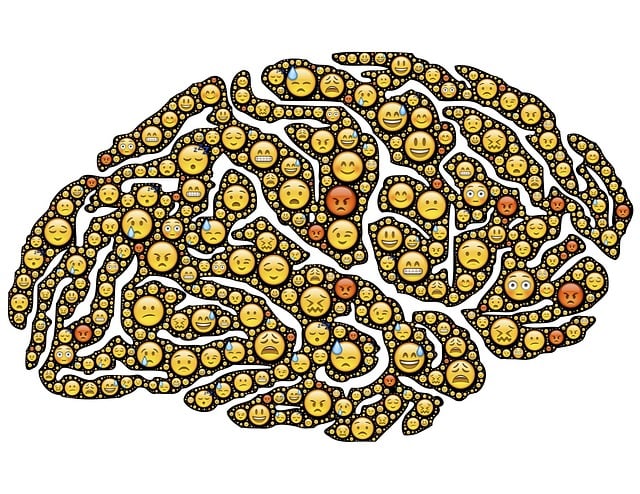Northglenn Depression Therapy offers specialized trauma-informed care, empowering clients with mood management techniques and mental wellness coaching programs. Skilled therapists utilize evidence-based practices like EMDR and CBT to address root causes of distress, providing tailored treatment plans for comprehensive healing. Their robust system integrates diverse services, including community outreach, to support individuals experiencing trauma, fostering resilience and long-term recovery.
“In addressing the complex issue of trauma, Northglenn Depression Therapy (NDT) emerges as a beacon of hope. This article delves into the multifaceted aspects of trauma support services, beginning with an exploration of trauma’s profound impact on individuals and communities. We examine NDT’s role in providing specialized care, discussing strategies for identifying and assessing trauma within clients.
Furthermore, we uncover effective therapy techniques and emphasize the importance of building robust trauma support systems. By understanding trauma and leveraging evidence-based practices, NDT contributes to a comprehensive approach to healing.”
- Understanding Trauma and Its Impact
- The Role of Northglenn Depression Therapy in Trauma Support
- Identifying and Assessing Trauma in Clients
- Effective Trauma Therapy Techniques and Interventions
- Building a Comprehensive Trauma Support System
Understanding Trauma and Its Impact

Trauma is a profound and complex experience that can have lasting effects on an individual’s mental health and overall well-being. It stems from various sources, including but not limited to, violent or abusive experiences, natural disasters, or even prolonged exposure to distressing events. Understanding trauma is the first step in providing effective support. Many individuals who have experienced trauma struggle with anxiety, depression, and other emotional difficulties, which can significantly impact their daily lives and overall mental health.
In Northglenn, Depression Therapy and Mental Health Policy Analysis and Advocacy play a pivotal role in addressing these challenges. Therapists specializing in trauma-informed care help clients process and heal from past traumas, promoting mental wellness. Mood management techniques are crucial tools within this framework, enabling individuals to regulate their emotions and improve their quality of life. Additionally, the development of Mental Wellness Coaching Programs can empower people to take charge of their mental health journey, fostering resilience and a sense of agency.
The Role of Northglenn Depression Therapy in Trauma Support

Northglenn Depression Therapy plays a pivotal role in providing comprehensive trauma support services. Trained professionals at Northglenn offer a safe, supportive environment where individuals can begin their journey towards healing. By integrating evidence-based practices and techniques like conflict resolution strategies, mood management tools, and emotional well-being promotion methods, they address the multifaceted needs of those who have experienced traumatic events.
This therapeutic approach goes beyond simply managing symptoms by empowering clients with skills to navigate and overcome challenges related to trauma. Through individualized treatment plans, Northglenn Depression Therapy helps individuals process their experiences, develop coping mechanisms, and regain a sense of control over their lives, ultimately fostering resilience and enhancing overall emotional well-being.
Identifying and Assessing Trauma in Clients

Trauma can often be subtle, hidden beneath a facade of normalcy, making it crucial for support services to master the art of identifying and assessing its presence in clients. This process involves delving into their personal histories, listening attentively for red flags, and employing evidence-based assessment tools tailored to trauma detection. At Northglenn Depression Therapy, we emphasize the importance of a thorough evaluation, utilizing methods that go beyond surface-level conversations.
Our therapists are trained to recognize the complex interplay between trauma and mental health issues, such as depression. By incorporating Mind Over Matter principles and emphasizing emotional regulation through self-awareness exercises, we create a safe space for clients to explore their experiences. This assessment process is pivotal in tailoring treatment plans that address the root causes of distress, fostering healing and recovery.
Effective Trauma Therapy Techniques and Interventions

Effective trauma therapy techniques and interventions play a pivotal role in Northglenn Depression Therapy. One widely recognized approach is Eye Movement Desensitization and Reprocessing (EMDR), which helps individuals process traumatic memories and reduce their impact. This method guides patients through side-to-side eye movements while recalling the traumatic event, helping to desensitize them to the memory’s emotional charge.
Additionally, Cognitive Behavioral Therapy (CBT) is a powerful tool for managing trauma-related symptoms. CBT focuses on identifying and changing negative thought patterns and behaviors associated with trauma. Integrating techniques from both EMDR and CBT, along with other evidence-based practices, allows healthcare providers to offer comprehensive support. The Stress Management Workshops Organization and Healthcare Provider Cultural Competency Training emphasize the importance of tailored interventions, while the Community Outreach Program Implementation ensures access to care for underserved communities.
Building a Comprehensive Trauma Support System

Creating a robust trauma support system involves integrating diverse services that cater to the multifaceted needs of individuals dealing with traumatic experiences. Northglenn Depression Therapy, for instance, can serve as a cornerstone by offering specialized therapy sessions tailored to help clients process and overcome their traumas. This includes evidence-based approaches such as cognitive behavioral therapy (CBT) and eye movement desensitization and reprocessing (EMDR), which have proven effective in treating complex trauma.
Beyond therapy, building resilience is crucial for long-term recovery. Implementing programs focused on stress management and fostering mental strength empowers individuals to cope with future challenges. By combining these initiatives with accessible resources for emotional support, communities can create a comprehensive network that not only assists in healing from past traumas but also equips individuals with the tools necessary to navigate life’s stressors using mind over matter principles.
Trauma support services are essential for healing and recovery, and Northglenn Depression Therapy has established itself as a vital resource. By understanding trauma’s profound impact, professionals can effectively identify and assess clients’ needs. Utilizing evidence-based therapy techniques, such as those offered by Northglenn Depression Therapy, allows for comprehensive treatment. Building a robust trauma support system that includes access to specialized services is key to helping individuals navigate their healing journeys. This holistic approach ensures that those affected by trauma receive the care they deserve, fostering resilience and restoring hope.














